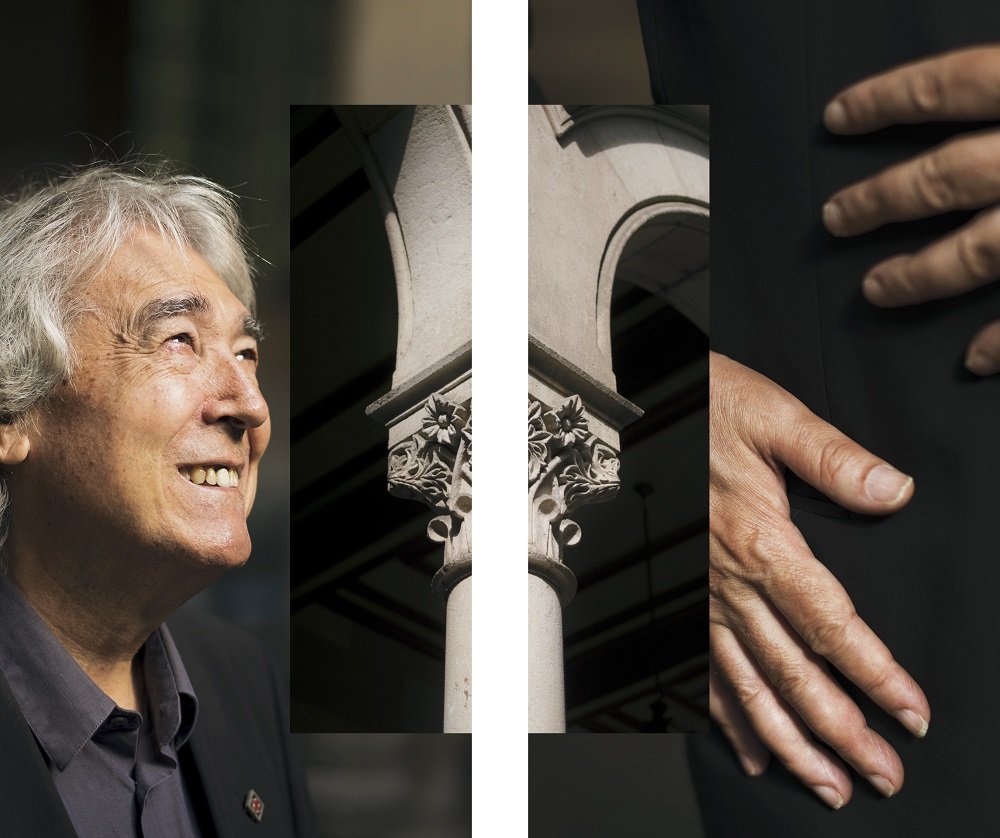If dying is so natural, why is it so hard for us to talk about it?
There are cultures that talk a lot more about it. But it is totally taboo in ours. And no wonder, because it’s also true that, although death is natural, it is the end of life and we, in some way, are programmed to survive. Plus, as nature establishes sexual differentiation as a means for reproduction, two beings have to communicate for life to continue. That is why I always say we’ve come into this world to party. But we’ve also done so to care for each other. It is very exciting to see that people have been found, among archaeological ruins dating back 35,000 to 50,000 years, who needed someone else throughout their life, who always had someone nearby to take care of them.
Speaking of care and the end of life, why is good communication important and what does it consist of?
Good communication gives patients a certain degree of emotional wellbeing. And this can be done, first and foremost, through kindness. Kindness is one of those qualities generally accepted in all cultures around the world; what could be called a “universal culture”. Everyone wants to see a kind face, hear a kind voice. And in the most difficult situations in life, like illness whether or not it is terminal, it is necessary.
And what role does silence play?
Silence, in our society, has very negative connotations: it generates mistrust, as if it is hiding something. But we should also educate ourselves on how to just be quiet with someone else, to enjoy the silence, because it is an essential part of letting someone know we are there for them.
How do you care without talking?
For someone in palliative care, compassion is very important. But from an Asian philosophy: sharing emotion so that the other person doesn’t suffer. There are many communicative strategies we can use to make someone else feel better. And they are all very old emotions. A smile, for example, is 25 to 35 million years old. It started as a ritual of showing one’s teeth to say, “don’t worry, I won’t hurt you” and has ended up being used as an expression of affection. Look, when people wonder what happiness is, one approach is this: to neutralise pain, physical and moral suffering. They go hand in hand, and are located in the same part of the brain.
Any specific communication strategy you could recommend?
First, watch your tone of voice. We’re all mammals. The first mammals were very small nocturnal animals who lived in caves and had to incite the production of sound to communicate. This communication through sound has been passed down genetically to us, and we have added language to it. But we mustn’t ever forget the element of sound: to make our voice sound kind.
Then, it depends on the person, but in general, touching and holding someone’s hand is normally very nice. Because touch makes oxytocin levels shoot up, decreasing anxiety. Plus, holding someone’s hand can have huge symbolic value: culturally, it is the most important sign that someone is not alone.
And, in a more intimate relationship, stroking the person’s head. If you look, monkeys rub their hands over their heads all the time. This is intuitive wisdom, because by touching their heads they are stimulating cerebral connections in areas like the neocortex and the prefrontal cortex, which have a big influence on emotional wellbeing.
And how do we know when to speak and when to be quiet?
You have to know how to listen to what the other person needs. Knowing, or asking, because listening is asking, too. My mum is turning 100 soon and I’m very aware that, after talking a while, she needs to rest a bit. But this is something you have to interpret on your own. That’s why we need empathetic people, who can recognise how others are feeling. Not only their mental state, but emotional, too. And ask, for example, “How about a five-minute break?”.
And this empathy, can it be learnt?
Of course. The thing is that emotional intelligence hasn’t had much of a place in education. Emotions have also been taboo. And we’ve forgotten that most knowledge springs from an emotional base. In the constitution of the brain, emotions are about 200 million years old, while reason just 100 million. The people we choose to have around us, what we study, the memories we cherish… it is all because they have touched us emotionally. Emotions help us remember and have a huge influence on whether something is successful. For me, for example, speaking about these things excites me. I’ve always had a special place in my heart for them.
You always say communication is a gift…
When we come into this world, I think the ability to communicate is probably the most important thing in our bag of innate tools. Because communication is what gives life continuity. It allows us to relate to others in order to reproduce. It lets us warn others of dangers. Because nature has prepared us for this, it has, in this regard, given us the gift of communication.
Photo: Clara de Ramon
You can read more stories like this on ALMA, the social social media, a digital space devoted to the social field, which brings a new look at the present and the future of society, from an optimistic and diverse point of view, and from all the initiatives that “la Caixa” Foundation promote.





















